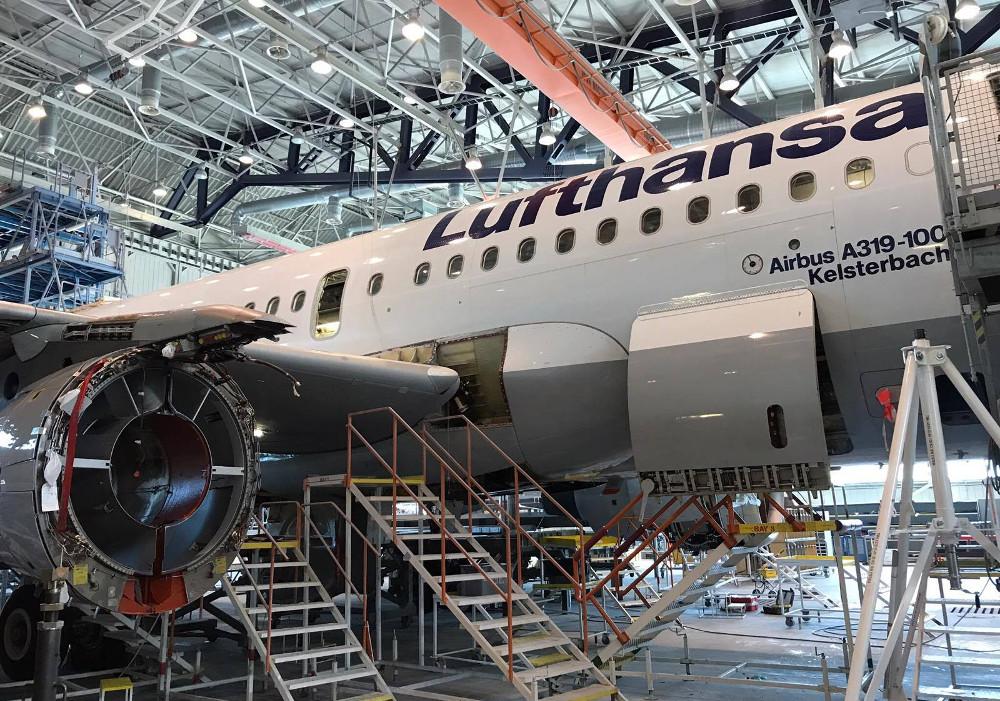
Lufthansa Technik was hit by the coronavirus fallout across its global operations in 2020, with demand declines in its core market of Europe proving particularly painful.
The world’s largest MRO provider reported a 43% drop in sales for 2020, as compared with the previous calendar year.
In response to the pandemic, the MRO provider is pushing its freighter conversion, parking and storage services, while also noting that its AVIATAR platform positions it well for the growth of digitalization.
In March 2021, Wizz Air became the debut customer of its AVIATAR Technical Logbook, which replaces paper-based documentation for crew to record technical issues.
“The coronavirus pandemic has led to greater demand for digital MRO services so that physical maintenance inspections can be organized more cheaply and reliably in future,” the company stated.
Sales from within its parent airline group, which encompasses Lufthansa, Swiss, Austrian, Brussels Airlines and Eurowings, fell 53% year on year, while external sales fell 38%.
Plummeting demand for engine overhauls drove declines in both internal and external revenue, while the third-party business was also hit by lower component maintenance activity.
For the full year, Lufthansa Technik posted an unadjusted pre-tax loss of €508 million, versus a pre-tax profit of €472 million in 2019. The unadjusted pre-tax loss of its parent group was €7.4 billion.
Due to the deterioration in the business outlook caused by the crisis, impairment losses of €66 million were recognized on investments in the MRO business segment.
Lufthansa Technik’s adjusted pre-tax loss was €125 million better than the result above due to company booking Covid-19 related write-downs on the value of its joint ventures and on the value of its spare engine inventory.
The company also cut its capital expenditure in half, mainly by lower investment in spare engines.
After a terrible year for engine lessors, that fact may provide a scintilla of cheer, especially if other MRO providers also cut back on buying spare engines.





